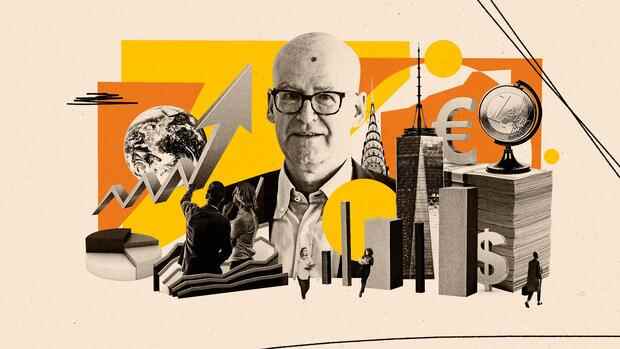Handelsblatt author Thomas Hanke analyzes interesting data and trends from all over the world in the column.
(Photo: Klawe Rzeczy)
The world is beginning to take notice that Vladimir Putin is waging his war not only on the battlefield in Ukraine, but also on the economy. Especially in the agricultural markets. “The conflict threatens to plunge tens of millions of people into food insecurity, followed by malnutrition and hunger,” said UN Secretary-General António Guterres last Wednesday at a conference in New York on disaster prevention.
German Foreign Minister Annalena Baerbock was more explicit: “Russia has started a grain war that is fueling a global food crisis,” she said at the same meeting. The people in Africa are the most affected.
If the international community doesn’t get the problem under control, many people are at risk of starvation, others will make their way to Europe en masse and trigger a new refugee crisis there, which was probably one of Putin’s goals from the start.
The grain merchants understood earlier than many Western governments what was threatening as a result of the Russian invasion of Ukraine. Even before the first tanks rolled in, large speculators were already building up extensive long positions on the Chicago Board of Trade futures exchange and stocking up on contracts. Even before the war began on February 24, the price of wheat jumped to over 400 euros per ton. That marks a historic high.
Top jobs of the day
Find the best jobs now and
be notified by email.
There have also been extreme price increases in the recent past. Between 2005 and 2008, the prices of the most important cereals rice, wheat, corn and soybeans tripled. As a result, hunger riots and protests broke out in many countries. In North Africa and the Middle East they led to the “Arab Spring” and the Syrian civil war with its mass exodus.
Land grabbing is becoming a problem
Another consequence of the food crisis is less well known: it accelerated the worldwide purchase of fertile agricultural land by the richest and most powerful countries in the world. According to the “Land Matrix” project, which is also funded by the German Society for International Cooperation (GIZ), between 2005 and 2020 more than 30 million hectares of arable land were bought in developing and emerging countries.
This corresponds to the area of the Federal Republic. The four biggest buyers: the US, Malaysia, China and the Gulf States. In some African countries, France and Canada are the main buyers.
The buyers want to secure the food security of their own population. On the other hand, in countries where the best, well-watered soil is bought, the land is no longer available to feed the locals.
Tragically, the trend that has become known as “land grabbing” is affecting the continent hardest hit by hunger crises: Africa.
According to Land Matrix, most of the more than 30 million hectares of land purchased are in African countries. Even in countries that are regularly in the headlines because of hunger crises and violent conflicts, such as Ethiopia, Sudan or Mali, powerful investors are taking over the scarce fertile farmland.
Private companies often buy, but according to the Land Matrix, state actors are behind them. The World Bank first reported on “land grabbing” in 2010, pointing out even then that “such investments do not create sustainable value and result in the local population being worse off than before”.
The Food and Agriculture Organization (FAO), headed by the Chinese Qu Dongyu, on the other hand, only says when asked: “The issue of land ownership is very complex and available data is often incomplete.” This answer is surprising, given that it is the task of the FAO to shed light on the subject .
The World Bank points out that in Africa, at best, ten percent of land holdings are properly documented. That makes it easier for financially strong buyers to drive the farming farmers off their land. Giving farmers clear legal titles for their most important production factor is a promising approach to restricting “land grabbing”.
However, the current crisis and the prospect that the export capability of Ukraine, the “breadbasket of the world”, will be weakened in the longer term are likely to have the opposite effect for the time being: land grabbing will accelerate, and that in the countries that are most vulnerable are.
More: Global Trends – How Putin’s war is turning the world economy into a battlefield

